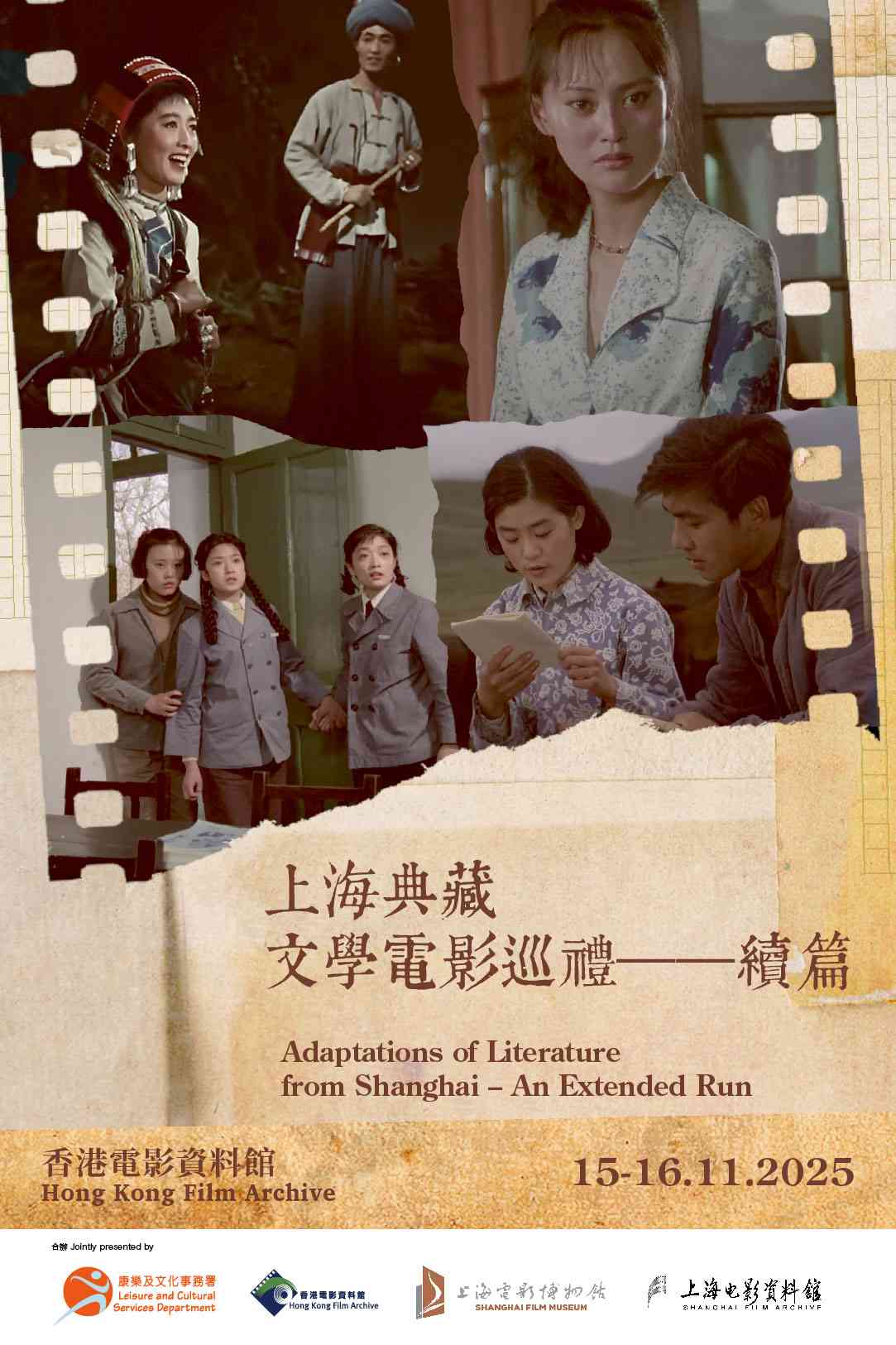This page has been idle for a while. To make sure you don’t miss out on the latest content, please reload the page.Refresh
Refresh
This page has been idle for a while. To make sure you don’t miss out on the latest content, please reload the page.Refresh
Refresh




As one of the nation’s earliest modern metropolises, Shanghai has been a major centre of Chinese cinema since the introduction of film technology into China in the early 20th century. Indeed, the development of Hong Kong cinema also benefitted greatly from the wave of filmmakers who had migrated south from Shanghai. The city continued to play a vital role in Chinese cinema after World War II, especially following the establishment of the Shanghai Film Studio in November 1949. One of the major film production bases in the Chinese Mainland, the studio produced a vast number of outstanding films over the past 70 years, earning numerous awards domestically and internationally, and receiving widespread acclaim.
This screening programme features four carefully selected literary adaptations from the Shanghai Film Studio’s extensive catalogue, each differing in era, theme, and style. The earliest film, Ashima (1964), holds special significance as China’s first major musical release to be filmed in colour and presented in widescreen format with stereo sound. Directed by actor-turned-director Liu Qiong, who conducted extensive research and fieldwork, the film is adapted from a long narrative poem of the same name by the Sani people, part of the Yi ethnic group in Yunnan. Transforming its source material into a tragic love story of resistance against oppression, Ashima features dazzling sequences of ethnic song and dance. In the 1980s, veteran director Xie Jin adapted Zhang Xianliang’s short story Soul and Flesh, a renowned work of ‘Scar Literature’ for the big screen. Through its expressive film language and cinematography, The Herdsman (1982) crafts an intimate portrait of the emotional journey of an intellectual sent to the northwestern grasslands, revealing a heartfelt and selfless love for family and country.
Forever Young (1983) is based on an early novel by Wang Meng, set in the early 1950s and focusing on the school life of a group of graduating female students in a Beijing high school. Female director Huang Shuqin offers a sensitive female perspective in her depiction of the joys and sorrows of young women growing up amidst the transition between the old and the new. Shi Shujun’s Conservatory Garden Very Deeply (Part One & Part Two) (1989), also directed by a female filmmaker, is an adaptation of renowned writer Chiung Yao’s eponymous novel. Interweaving the past and present, the narrative of the film explores how young people break free from the constraints of feudal moral codes to pursue individuality and romantic freedom.
Following the screening programme ‘Adaptations of Literature from Shanghai’ in 2021, the Hong Kong Film Archive is working with the Shanghai Film Museum and Shanghai Film Archive once again to jointly present this programme. We extend our heartfelt thanks to both institutions for their generous support in curating these screenings and for providing the screening materials and related film stills, allowing Hong Kong audiences to enjoy a series of films from Shanghai and their fascinating links to literature.
2025/11/15SAT12:00PM
Ashima (4K Restored Version)
2025/11/15SAT03:30PM
The Herdsman (4K Restored Version)
2025/11/16SUN12:00PM
Forever Young (2K Restored Version)
2025/11/16SUN03:30PM